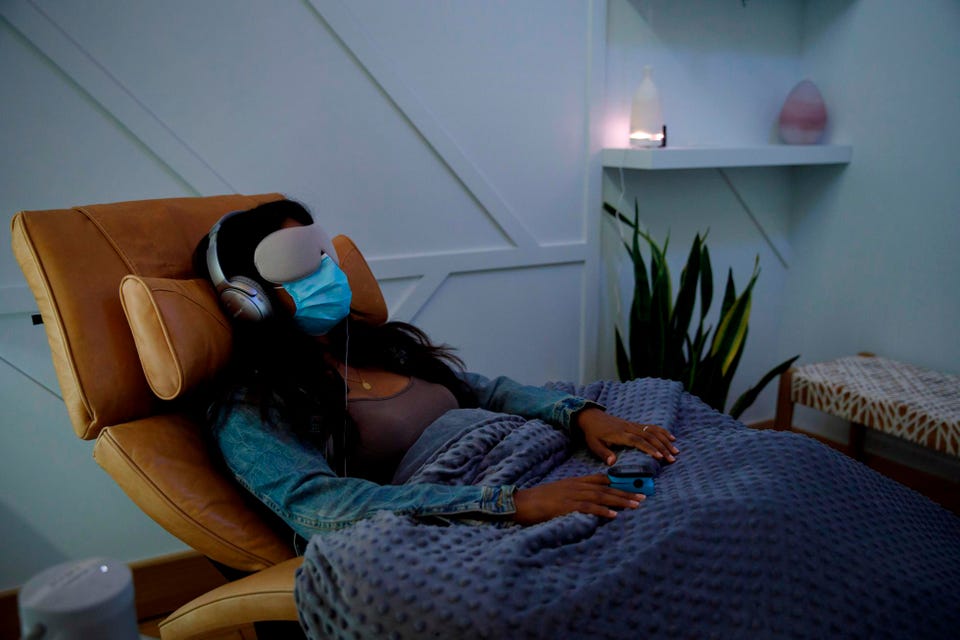
Fighting the whitewash of psychedelic therapy in Philly
MDMA is currently in Phase III clinical trials that could lead it to being FDA-approved for PTSD. Much of the research around the drug focuses on white…
There has been a major increase in medical research into psychedelic drugs and their potential uses in treating mental illness.
Psilocybin, otherwise known as shrooms, Ayahuasca, the psychotropic plant medicine from the Amazon, ibogaine, a potent hallucinogen from Africa, Lysergic Acid Diethylamide (LSD), and even MDMA (ecstasy) are being researched for their therapeutic benefits.
New treatment options for adults living with PTSD, depression and anxiety are the focus of the new Center for Psychedelic Research and Therapy — the first center of its kind in Texas. https://t.co/k4jJqy5Ckn (1/3) pic.twitter.com/7a8a9fCV5a
— Dell Medical School (@DellMedSchool) December 16, 2021
MDMA is currently in Phase III clinical trials, which is the final phase before it heads to the Food and Drug Administration (FDA) for approval. If the results hold up, the drug could be used in therapy to treat symptoms of post-traumatic stress disorder (PTSD) by early 2022.
Many Philadelphia residents have turned to these types of drugs to treat depression, anxiety and PTSD. At SoundMind, the first psychedelic-assisted psychotherapy treatment center in the city, patients can heal from trauma with this practice in addition to psychotherapy sessions.
“Higher doses sound a little bit scary, and everyone’s afraid they’re going to run down the street naked. And it’s like, no, the scary part is actually where the healing comes. You have to go into the part of your mind that you didn’t go into before,” Hannah McLane, SoundMind’s founder and director told Philly Mag.
Using psychedelics — for intense therapy sessions or to deal with everyday life — is becoming more and more popular in Philly. The SoundMind Center and the Philadelphia Psychedelic Society both have hundreds on their waiting lists. https://t.co/kVVbs3VbOQ
— Billy Penn (@billy_penn) January 17, 2022
But researchers have discovered that much of the research is “whitewashed” and are pushing for more inclusion. A study from 2018 found that 82% of participants in psychedelic studies were white.
As a result, practitioners may be missing out on a huge opportunity to use psychedelic-assisted therapy to treat racial and intergenerational trauma within communities of color.
In addition to the entry barriers, it’s also generally safer for white people to speak publicly about drugs, and people of color are still criminalized more often for drug use.
Elijah Watson, a journalist who’s written about the whitewashing of psychedelics, explained to WHYY News that the drugs originated in communities of color, and some of the traditions are still alive, but some have been banned or destroyed through colonization.
“Black and Brown people are more disproportionately arrested and targeted during this still very ongoing ‘war,” Watson told WHYY News.
Many white people continue to partake in psychedelics, while people of color have many reasons to be fearful. Watson added that police officers have a tendency to treat people of color with mental illness with a “shoot first and ask question later” approach.
RELATED CONTENT
“If I’m going to partake [in] this substance that may make someone think I have this mental illness, and I see how cops already treat them, what’s to say that they’re gonna treat me any differently?,” Watson said.
Because there’s so much mistrust, the Multidisciplinary Association for Psychedelic Studies (MAPS), has had trouble convincing people of color to join their clinical trials, so for Phase III, it reached out to psychologist Monnica Williams to boost trial diversity.
Williams, a Black woman, has spent her career addressing mental health disparities and working with patients who have trauma from racism and discrimination.
“We know that people in communities of color may have a lot of additional trauma beyond the usual suspects. So beyond assault and combat, things like cultural traumas due to genocide, slavery, immigration trauma and refugee trauma,” Williams told WHYY.
Williams has trained in MDMA-assisted psychotherapy with MAPS, and says it has infinitely greater potential for successful treatment of PTSD than what is currently being used.
‘I’m better mentally now’: Veteran shares experience of MDMA treatment for PTSD — via @TODAYshow https://t.co/L2tRlNpsXO
— Plant Media Project (@PMProject) November 5, 2021
Williams is leading the first-ever MDMA study to focus on the traumatic experiences of Black, Brown, and other minority groups. The study is one of 14 currently sponsored throughout the United States and overseas by the MAPS.
“People are making new connections in their brains, and changing how they’re thinking about their trauma. I don’t know, I think it’s a beautiful process really. In a way that I wouldn’t say is necessarily true of traditional therapy,” she said.











LEAVE A COMMENT: